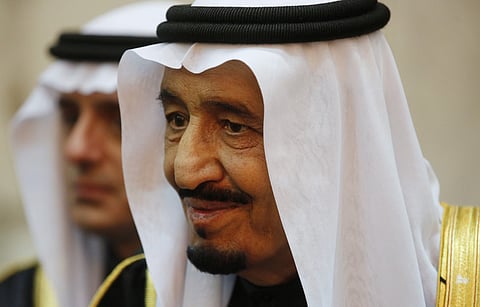Saudi Arabia faces challenges on many fronts
King Salman’s major achievement so far has been to reform his country to prepare it for what is shaping up to be a difficult future ahead

With the death of king Abdullah Bin Abdul Aziz at a time of great change, Saudi Arabia seems to be entering a new phase, both domestically and externally. The new ruler, King Salman Bin Abdul Aziz — the sixth son of the founder of the country, king Abdul Aziz Al Saud, to ascend to the throne — has taken swift action by appointing Prince Mohammad Bin Naif as deputy crown prince. The youngest son of the king Abdul Aziz, Prince Muqrin Bin Abdul Aziz is the crown prince.
The move to appoint Prince Mohammad Bin Naif as deputy crown prince heralds the arrival of the third generation of the Saudi dynasty to centre stage. This means that the succession issue surrounding the throne is secured for a good time to come. When Abdul Aziz, the founder, took control of the eastern province in 1913 and the western province in 1921 (Jeddah and Makkah and Madinah), he told Lebanese-American historian Ameen Al Ryhani that this was what his grandfather had told him. He would later expand his territory to create what later came to be known as the Kingdom of Saudi Arabia, which is now entering its second century
King Salman is best placed to know the challenging times Saudi Arabia faces. He was the governor of Riyadh for almost four decades and saw it grow from a small desert town to one of the largest capital cities in the Middle East — after Cairo and Tehran. Riyadh, however, has more advanced services than the top two, boasting high-rise buildings, wide roads and modern communication facilities. About a third of Saudi citizens live in the city.
When King Salman took office as governor of Riyadh, there were no more than a dozen or so university graduates in the entire kingdom. Today, there are about 30 universities across the country. Thousands of Saudis study abroad and eventually return to their country. The private sector in the kingdom has moved from small businesses to billion-dollar establishments employing thousands of Saudis, both male and female.
Rebooting the country’s bureaucracy
Less than a week after taking over, King Salman moved to reboot the country’s bureaucracy. He reshuffled the cabinet, carrying out major changes. He got rid of many special committees, replacing them with only two: one for political and security affairs and the other for economic affairs. In doing so, he is making the government leaner. The king’s achievement so far is preparing for what needs to be done — reforming the country to enable it to face the coming challenges, both local and regional.
The move to combine the ministries of education and higher education shows the importance of having a single education policy. Many have criticised the Saudi education system, with experts calling for a reform of the system — in both methods used and content. Also, bringing the whole system under one umbrella, as opposed to the dual system than exists.Almost one-fifth of the Saudi budget is spent on education and two-thirds of Saudis are under the age of 30. This is quite challenging for the new administration.
Women’s issues are the second in line, complementing efforts undertaken by the late king to bring them into public sphere through the appointments to the Shura Council.
Regionally, the challenge is obvious. In the south, the situation in Yemen has become even more dire after the takeover by Al Houthis on Friday. Yemen shares a long border with Saudi Arabia and has had a love-hate relationship with the Saudi state. It can be a security headache for the kingdom. With a failing state there, could old wounds be reopened?
In the north, there is a serious threat from Daesh (the Islamic State of Iraq and the Levant). Stability in Egypt is another political and economic concern. So the whole scene surrounding Saudi Arabia warrants great attention. King Salman has sent envoys to immediate neighbours, as it happened recently with Kuwait.
I think the entire Middle East is waiting for July 2015, when we will know the outcome of Iran’s nuclear negotiations. Either that will lead to some sort of settlement or lead us to more conflict.
Credit: Mohammad AlRumaihi is a professor of political sociology at Kuwait University. You can follow him on Twitter at www.twitter.com/@rumaihi42



